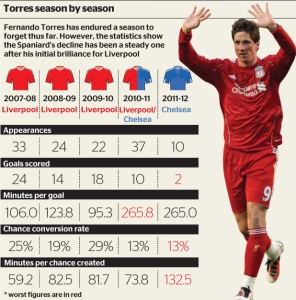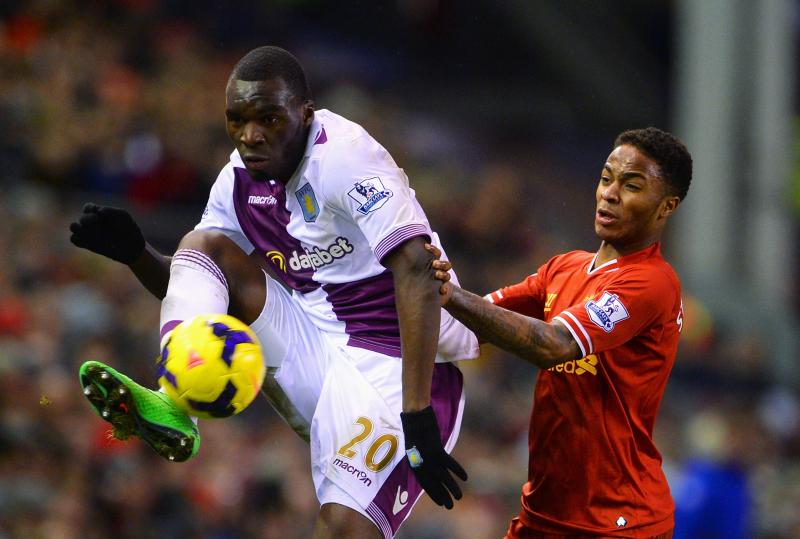I wrote a post a month or so ago about how I felt transfer windows had lost their attraction.
This might be due to getting older, gaining a greater understanding of intricate details and being skeptical of British media and/or the Sky Sports agenda. But for me, the obscene amounts of money attributed to the purchase the rights to field a player of a certain team as well as the cyclical discussions and narratives surrounding fees have just become irritating.
I find it bewildering that in a world where sources of stories can be easily cross checked and verified, as well as the amount of statistics that are publicly available, that commenters, fans and even professionals who are closer to the industry than most suddenly find a focal point and stick to it. I mean, I can answer my own question really - It sells papers, it baits tweeters and it garners revenue to ad-based websites and phone-ins.
The latest couple to join the bandwagon of media targets (joining the likes of Fernando Torres, Jose Mourinho and Mario Balotelli) are firstly the ‘overrated’ attitude toward a certain Raheem Sterling and the ‘overpriced’ nature of Christian Benteke. One is greedy, the other is injury-prone - Simple. Why pay an obscene amount of money for a 20 year old who was inconsistent last season? Why pay an obscene amount of money for an injury prone striker who doesn’t fit a perceived philosophy?
A caveat or tangent here - Whenever a player gets linked away to a rival or a different club, I always tend to play a devils advocate in terms of offering the player’s point of view; that they might want career progression, they might want to develop their game with a different environment or they might be being head-hunted by another.
Let’s put this in actual career terms.
You work for Woolworths. You’ve got a good job, you’re important to the store, you get on with the regular customers and the staff all appreciate your presence. You often are on hand to help and save them whenever they’re in a pickle, using diplomatic relations to put out any potential fires which would cause abrasion in the staff room. Now, Waitrose have heard of you, and they’re a fan of your work - They could use a person like you on their staff who are getting older by the day and aren’t as modern or talented as you are. They offer you a chance to work for a bigger company, with a better bonus structure, and the option to be a part of a company who are seen as a reseller of top quality goods, as opposed to your cult based team.
These questions circulate until someone just gives up arguing and it’s the accepted train of thought. But who wants to bother with the context, right? Who wants to bother with a train of thought where an individual who works at a firm and is offered the chance to relocate to a location which isn’t too far away, with the prospect of a lot more money and potential for more bonuses? But the company gave you your first shot at a full-time job! They sent you to the biggest conferences, you presented and people enjoyed your work - But then two years later, you feel like you haven’t progressed.. So when another company comes in with an unmatchable financial package, do you take it? Do you stay loyal because the company you work for has the ‘best and most loyal’ consumers in the world? Or do you look to move forward?
This analogy will annoy of a HUGE number of Liverpool fans who see this as comparing Woolworths to Waitrose as Liverpool to Man City - I mean it as any good level club competing against any club who has performed comparatively better in the years that have passed. Oh, and the fact that Woolies went under. That’s all by the by - I hope the point comes across without you lot getting to hung up on the analogy; that if you’re giving the opportunity to either change to a better job, or work to get a better job - the easy way out is to choose the former. That’s it.
This is probably a terrible way to explain the Raheem Sterling situation, but it’s a point of view worth considering. I’ll probably enjoy him being on the end of a particularly strong (but within the laws of the game) challenge from Martin Skrtel or Mamadou Sakho, but for the moment I wish him the best of luck at his new club.
(Photo by Peter Macdiarmid/Getty Images)
So the middle of this story is the way that transfers are currently evaluated - Value for money. Using the Bleacher Report’s recent article (good source, right? I couldn’t find another solid transfer source - I think this is where I should mention Paul Tomkins’ Transfer Price Index table, which is probably a lot more accurate than my dataset - Find it here.)
via. Tomkin Times
What is value for money? Strikers are great, because they’re dissected time and time again if they go periods without shaking the onion bag - Key people here are a Andriy Shevchenko and Fernando Torres. Two big money (alleged) Abramovich signings who ‘flopped’. I don’t get the stigma attached to huge amounts of money. Okay, I do - it’s the whole returns to investment point, that the potential value that one party loses and one party gains (here parties being football clubs than sub-par political parties) - How do you measure that? This is increasingly attached to the fee charged for the transfer of rights which includes stuff like signing on fees and bonuses and whatnot. Examples I’d use are Jordan Henderson, Marouane Fellaini and Rio Ferdinand. The reason why Rio’ s astronomical fee was never overly highlighted perhaps is linked to him being so young, his huge potential, and a previous big money move to Leeds, who he went on to captain.
Transfer fees are a free market system - It’s all it is; a collection of buyers and sellers where there is a price which the former are willing to pay and the latter are willing to accept. Simple, straightforward supply and demand. The tricky part is predictions. What if this was a one off? What if Torres never gets back to his scintillating best? What if Ross McCormack doesn’t live up to his obscene transfer fee? What if Andy Carroll doesn’t develop into a Drogba-like player? Team effects play a huge part of a players performance, as do attitude and the environment/mentality that they have when appearing for a club; so performances should be taken with a pinch of salt - Did Benteke really have an awful first half of the season, did Timmy Sherwood actually inspire confidence in him? Or was it merely a managerial change which lead to an approach and mindset which suited Benteke’s end product. (I’ll throw in my 2 cents here; he is not a target man like Andy Carroll - Think more Heskey, but with sublime finishing skills.)
This is where sports analytics is trying to predict and better understand this problem to make smarter decisions - It’s not simply about the fee, or the player - It’s a conglomeration of things. Will the player settle in the country? Is the playing style suited to him? Does he feel loved by the fans and teammates? Is there too much media pressure and hype surrounding him? What about his temperament? Will he believe his own hype and fall off the wagon?
These are all key questions that analysts are now, or should be asking. Football is ultimately played by human beings like the rest of us, as Paul Power states in his two excellent videos (here and here), football is a dynamic system - The stuff Prozone is trying to achieve is incredible and I look forward to seeing the rest of the work. There is so much at play in a football match, that one statistic (obviously) cannot explain the entire situation. I’ve always maintained my love of stats in sports is the context is provides - the wider understanding that our cognitive biases look to ignore or cloud.
Two further examples; when Nikica Jelavic signed for Everton from Rangers, and started scoring, or Papiss Demba Cisse for Newcastle, or Michu for Swansea - They were immediately highlighted as ‘bargains that big clubs missed’. Were they? How have each done at their clubs respectively, bar those one or two ‘good’ seasons? Has Aguero not been value for money? Were van Persie’s goals not a key reason why United won Sir Alex Ferguson his final league title? Suarez, Essien, Sanchez; all worth the huge outlay for the returns to investment. So, with this, team effects and the market mechanisms taken into account - perhaps the £49m paid for Raheem Sterling or the £32.5m paid for Christian Benteke will prove to be good business for all parties. Or perhaps City will have purchased another Jo or Jovetic and Liverpool have another Stewart Downing or Andrew Carroll.
I’ve included a screenshot of a Tableau Public dashboard on the topic of Transfer Fees, but also a link here if the picture link doesn’t work. Have a mess around with it.. It’s not as accurate or comprehensive as I would like, but I think it provides some good context into transfers. Second caveat here - IT IS IN EUROS. The site I got this data off only had the figures in €m so I’m afraid that will have to do.
Let me know your thoughts on the viz, the article - anything. I’m always happy to discuss further!